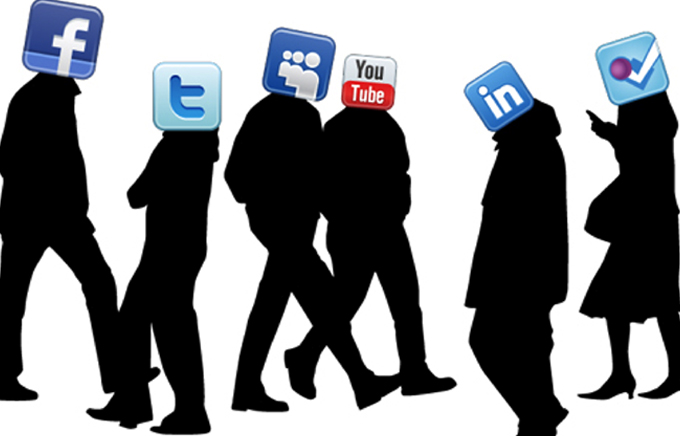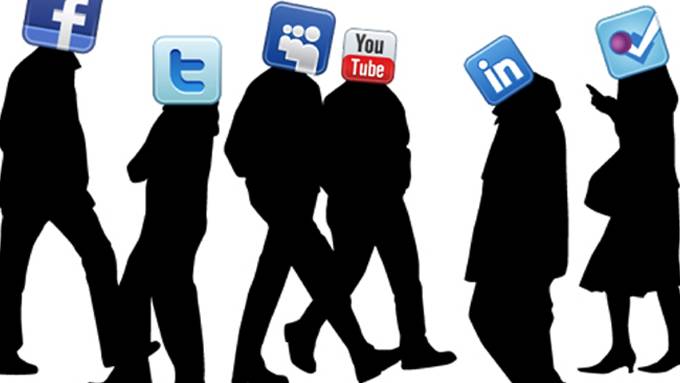Social media addicts are more likely to feel like failures
Source: dailymail.co.uk

Most people who use Facebook and Instagram have given in to the temptation to put a little gloss on their lives.
But instead of giving us a boost, all those posed selfies and pictures of holidays could be doing quite the opposite.
According to new research, people who use social media platforms are more likely to feel like a failure than people who steer clear of Facebook and other online networks.
Some 56 per cent of regular social media users feel like they are not reaching their full potential, according to consumer trends agency Future Foundation’s most recent survey of 5,000 UK respondents.
Around a third of Britons believe that they are not living up to their full potential, but that figure rises to more than half (56 per cent) among people who use social media, according to the study.
Young men are likely to feel it the worst.
One in three men aged between 25 and 34 wish that they were more like the person they described themselves as on social media, than the one they are in real life.
The study of 5,000 Britons was carried out by the Future Foundation, a trend forecasting firm, which found that people felt down about their own lives because they were forever judging themselves against other people’s apparent success.
Unsurprisingly, many were worried about the way they look, whilst others are concerned that they are not successful enough in their careers, or that they are simply not happy or busy enough.
Future Foundation found that people felt like they were under-performing in four main ways: body image (illustrated with a stock image), career, mood and energy levels.
‘Social media usage has created a culture of comparison among today’s young people,’ said Will Seymour, the research firm’s ‘brand officer’.
‘To be satisfied with one’s life is to be complacent - the goal is to be in a permanent state of improvement, always striving for something better.
'With an online culture of direct comparison, it’s no surprise that social media usage has a greater bearing on how much people worry about not achieving their potential than income or even education.’
Future Foundation warned that the problem may only get worse, as people who are worried that they are falling behind their peers spend even more time bragging about their achievements to put a misleading gloss on their life.
‘This shows that Brits are responding to the importance of appearing successful online by creating and projecting an idealised version of themselves, feeding the cycle of comparison,’ the organisation said.
Perhaps unsurprisingly, young people who have grown up with social media are more likely to feel bad about themselves than older users, who tend to take online appearances with a pinch of salt.
According to the survey, nearly two thirds (63 per cent) of people aged between 17 and 33 felt they are failing in life, compared to just 37 per cent of so-called baby boomers, aged 55 to 70.
And the need to keep up with the Joneses is also more intense in the capital, where more than half of the population feels like they are failing to reach their potential.
More than half (55 per cent) of Londoners feel like they are slipping behind, compared to 47 per cent in the West Midlands, which ranked as Britain’s ‘most satisfied’ region.
Twitter Anger is Like "Road Rage," Expert Claims
Ordinary people undergo road rage-like personality changes when using internet sites like Facebook and Twitter, a leading psychologist has warned.
A dangerous combination of people feeling distanced from the person they are abusing and having a vast platform on which to vent anger instantly encourages users to become more aggressive.
Just as normally calm drivers sometimes lash out when they get frustrated behind the wheel, so ordinary people can become uncharacteristically angry on social media, said Dr Richard Sherry.
The clinical director of Psychological Systems in central London said people using social media were less likely to feel empathy or compassion towards others.
He spoke as a new poll found almost nine in ten Britons now admit to having lost their temper more quickly online than in real life. Young people were the least tolerant.
The survey questioned 1,000 users of sites including Facebook, Twitter, WhatsApp, Instagram and Pinterest about whether their personality changes while reading and posting messages.
Some 84 per cent admitted they become more easily exasperated and enraged at others online than they ever would in person.
Young people are particularly prone to internet road rage, with 26 per cent of the 18 to 24 year olds surveyed saying they are 'always' worked up when using social media, compared with 18 per cent of 35 to 44 year olds and just 11 per cent of those in the over-55 age group.
The survey, carried out by OnePoll for 'anti-Facebook' social media site Pencourage, also revealed that many regret losing their temper online.
Source: dailymail.co.uk






















